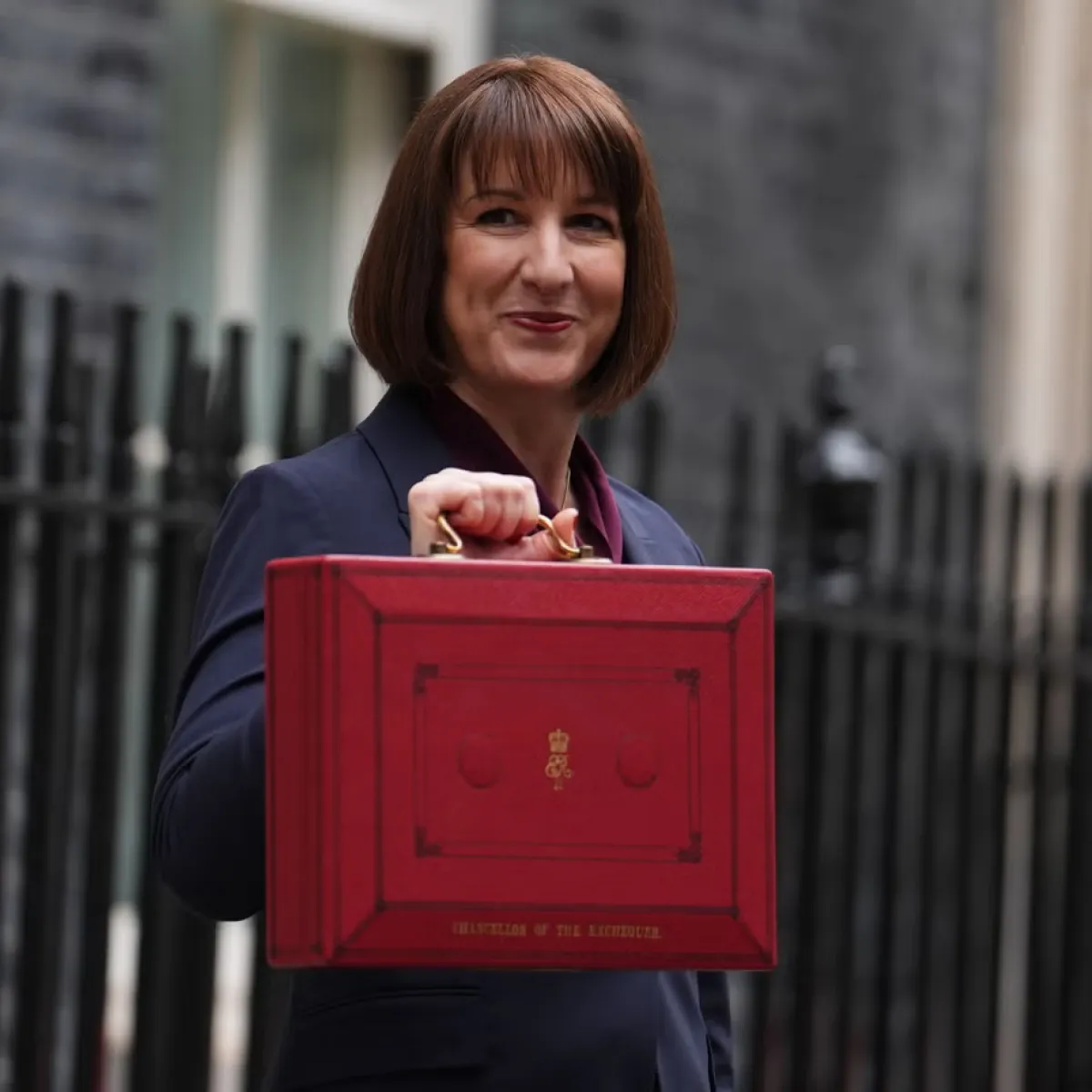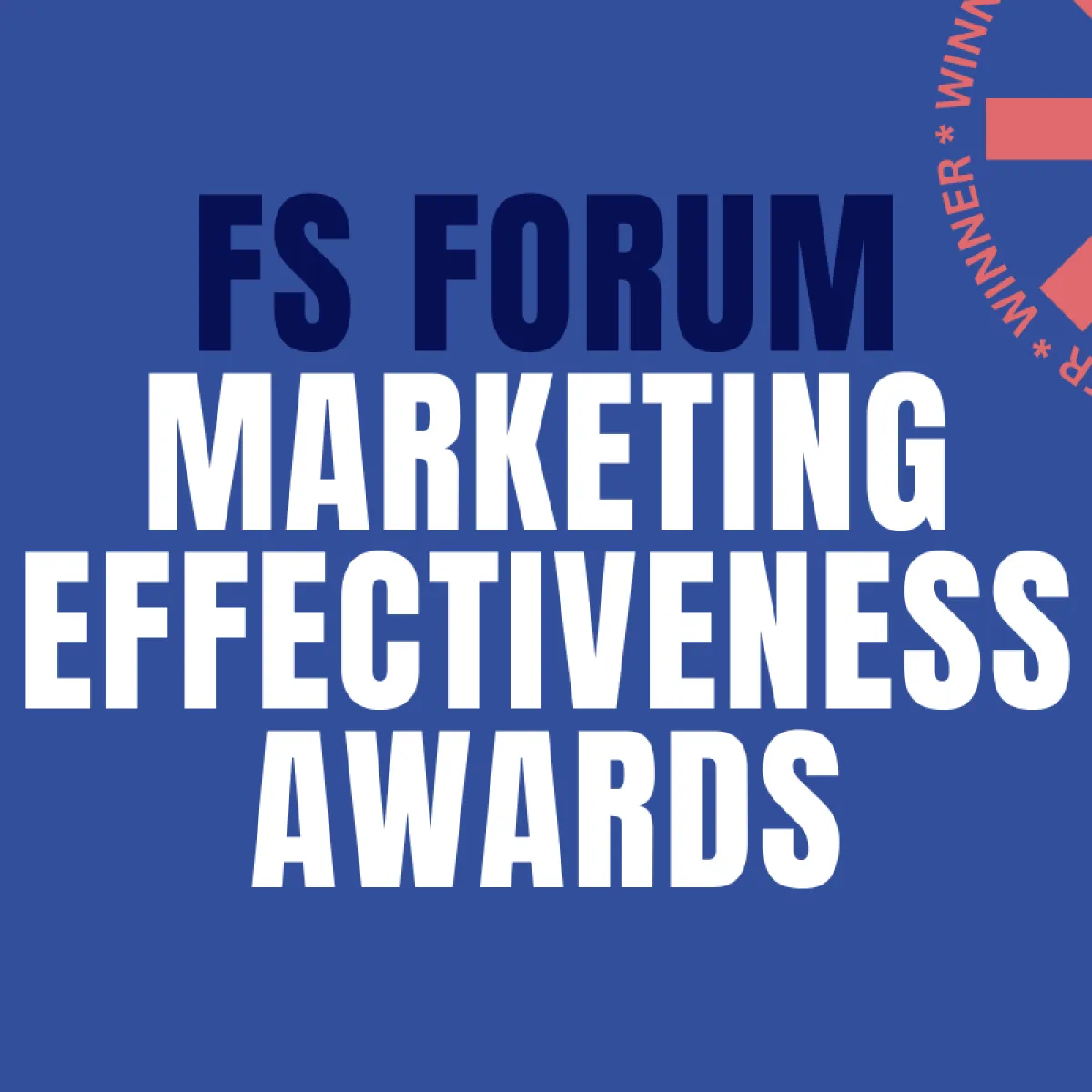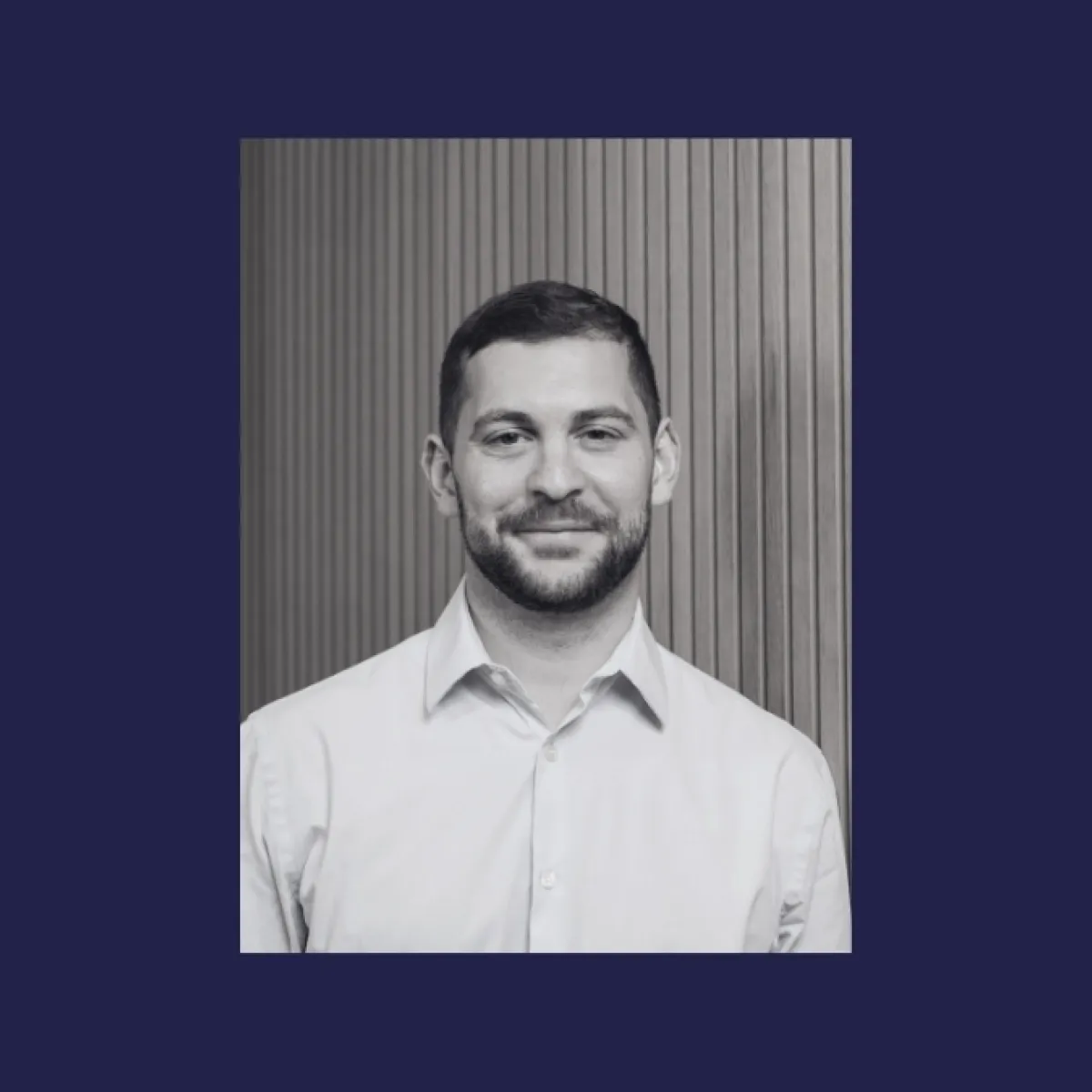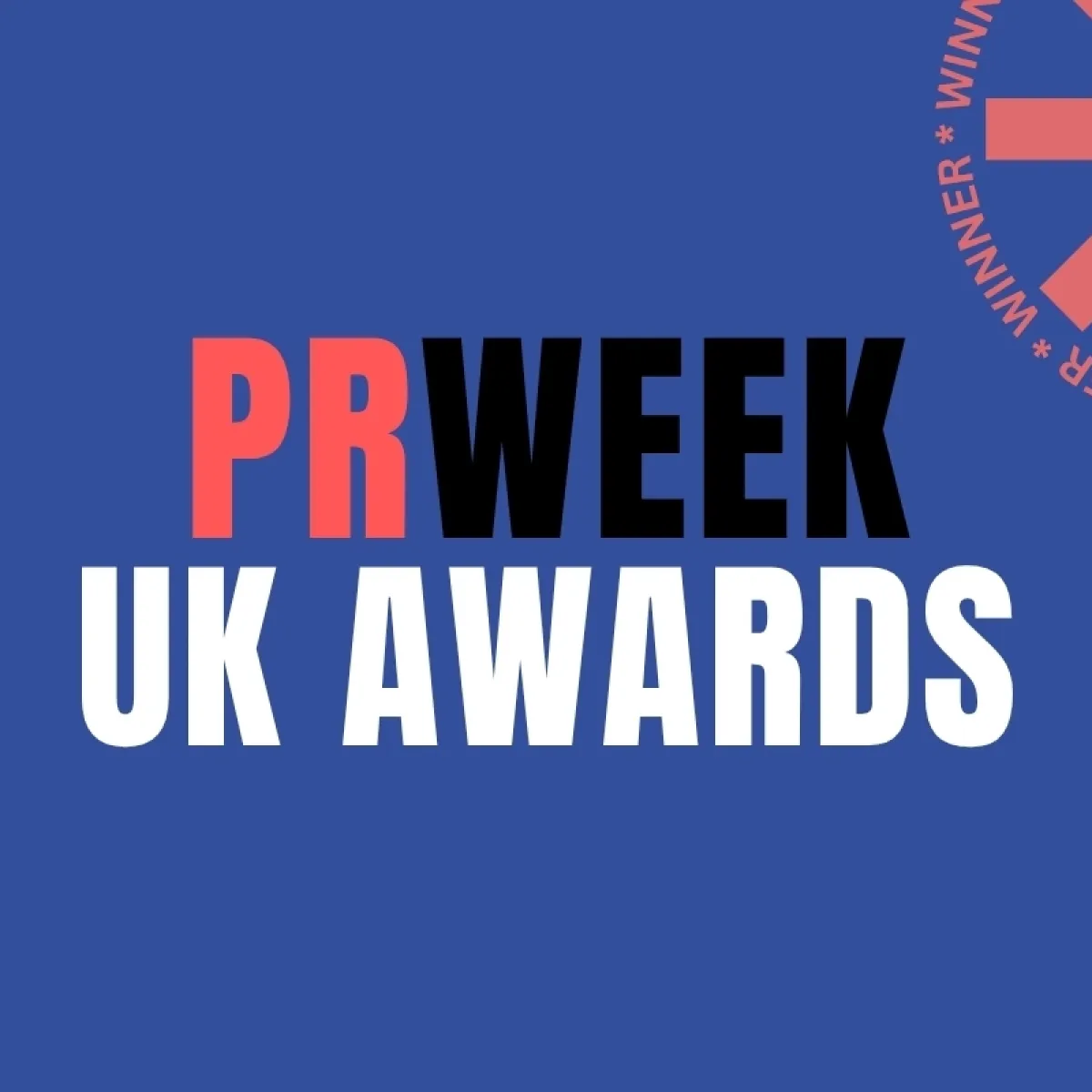This website uses cookies. Learn more
Sarah Bates, The Eighth Day, Investment Nimbyism
"So that's how the diversity project started. It was a conversation over lunch about why things haven’t moved on."
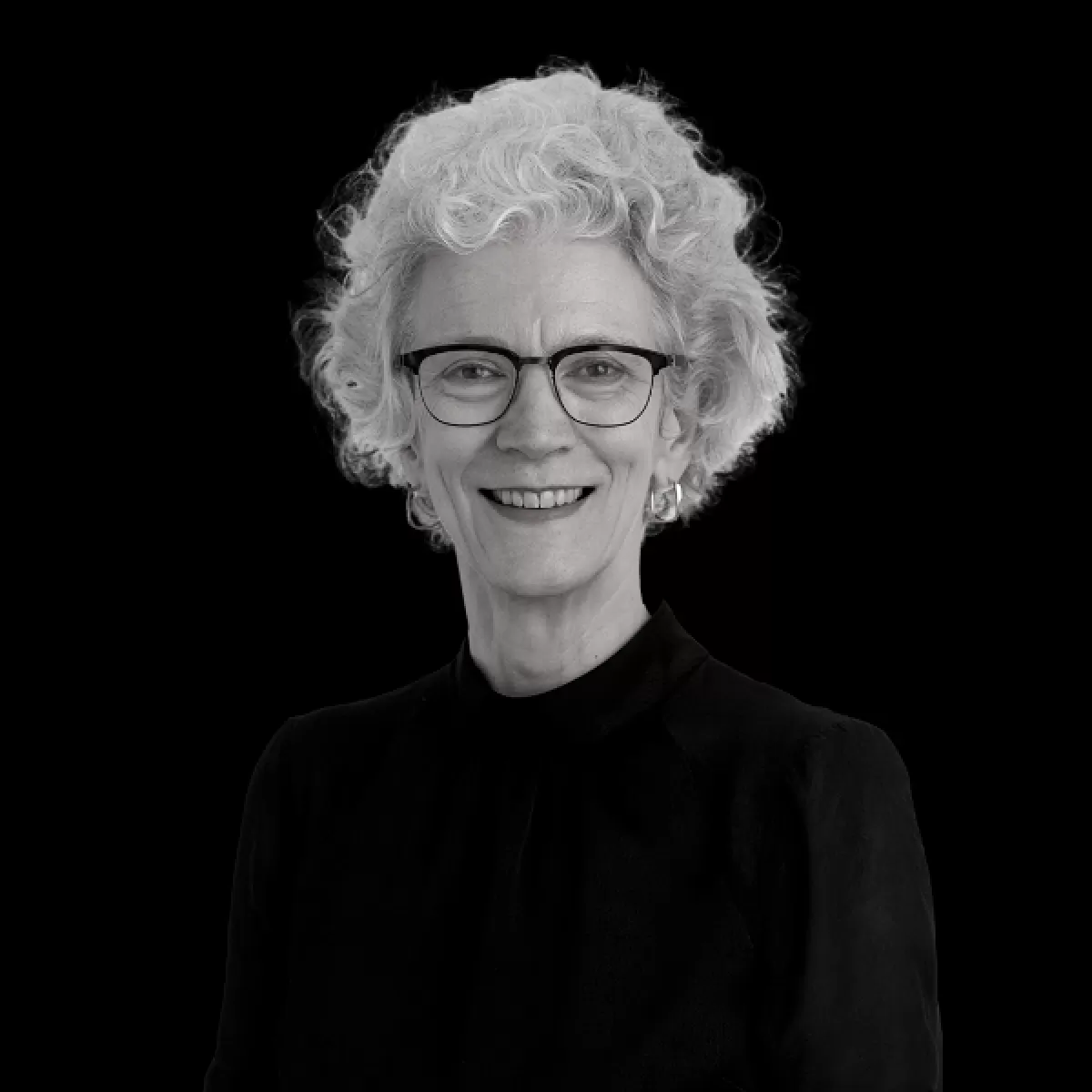
(mis)Conduct, Money & Reputation
Podcast Series by Lansons and Katten. Dissecting misconduct in financial services, from the rules and regulations - to the reputational fallout when things go wrong. This podcast series is an essential listen for those in asset management (and more broadly financial services) who are responsible for the safeguarding of business and brand; from compliance and corporate affairs to comms and marketing.
Episode Background
E05: Sarah Bates, The Eighth Day, Investment Nimbyism
From trawling The Eighth Day shop on Manchester’s Oxford Road in a long black cloak and dress to chairing the UK’s largest in-house pension asset manager at USS via one of the first graduate trainee schemes for stockbrokers, Sarah Bates has a long, storied and hugely successful career in the City and beyond. She has been a fund manager, a CEO, and has chaired some of the UK’s biggest pension funds.
Sarah was also one of the founders of The Diversity Project in 2015 which continues to make significant strides in improving DEI in the UK’s savings and investment sector.
But what makes Sarah tick, and what is her take on the state of regulation and reputation in today’s asset management sector?
In this episode, our hosts David and Neil are joined by Sarah Bates to uncover the challenges of improving DEI in the investment industry, the state of current regulation and what asset managers could do to improve their reputation with clients.
Episode Transcript
David Masters: Hello and welcome to the episode. This is our fifth episode in a new series for those working in financial services. Particularly in and around asset and wealth management, where we seek to navigate a path through some of the more complex issues where regulation and reputation intersect. My name is David Masters, Director and Asset Management lead at Reputation consultancy Lansons Team Farner.
Neil Robson: And I'm Neil Robson. Financial Services Regulatory Compliance partner at international law firm Katten.
David Masters: And with us in the studio today is Sarah Bates. Thank you very much for coming, Sarah.
Sarah Bates: Thank you for asking me.
David Masters: So, Sarah is a very experienced member of the financial services industry. She until recently was chair of the John Lewis Pension scheme. She is chair of the internal manager at the University Superannuation Scheme, the largest pension in the UK.
She's a senior independent director at Alliance Trust. She is also one of the founders of the Diversity Project. She's a mentor. She's been a fund manager, a CEO, a chair. It's been a fantastic career thus far, Sarah and long may it continue. But very interested to get us started in just a little bit about you and your origins, where you come from, your sort of upbringing, and how you found yourself in the financial services industry.
Sarah Bates: Well, in some ways it was my form of rebellion. I am a Mancunian. My mother was a medical librarian. My dad taught history at Salford and Liverpool universities, and I went to university. I started off reading philosophy and then changed to law, much to my father's dislike. And when I graduated in 1980, would you believe there weren't so many jobs going?
And the idea of being an analyst, being a researcher was something that appealed to me, and I had no idea what a stockbroker was. So, I applied to one and got an early graduate trainee job. But I would say things were very, very different than. Coming into the city in many ways was quite an eccentric thing to do.
The big employers were the civil service, the big FMCG firms, some of the big banks going into the heart of the city was, was quite unusual, and it was also quite unstructured. I'm not sure what they knew, what they were looking for and I'm not sure I knew either. But it was a good opening, fantastic opening and it's been fascinating to be part of this world for the last 40 odd years.
David Masters: And so, you're Mancunian. So, tell us a little bit about life in Manchester.
Sarah Bates: Ah well, it was probably the end, before the Hacienda and before Oasis, but it was just after really women's lib, the great turmoil of the sixties. But that was still quite an important part. And you may be surprised to know, do I dare admit this.
I used to go to a shop called ‘On the Eighth Day’, which was on Oxford Road in Manchester, and I'd wander around in a long black coat and a dress made out of an old Indian bedspread. And, you know, life has changed since then. But they were very different times. Manchester was in some ways quite late into the financial services, but Leeds was much earlier, and it was the end of the textile industry.
So, it was quite a depressed place at that stage. Good fun in some ways. Huge university towns, huge academic institutions, the NHS, the great hospitals they have. But know the 19th century had been incredibly wealthy and things had moved on. Actually, it's still a shock when you go back to see what's happened.
Neil Robson: So, you talked about coming into the city as your first, big after university job, as an act of Rebellion. Coming from a northern family, your parents must have thought that outrageous that you were coming down south to follow a career focused on money.
Sarah Bates: I don't think it was the coming down South bit so much. It was more, as I said, at university, I started doing philosophy. It was more giving up the academic side of things that they thought let the side down a bit.
Neil Robson: But I guess in 1980, the city was incredibly different than it is today. So, I would imagine it would be 99% white male.
Sarah Bates: Well, yes and no. It was certainly, I think white. But my first fund management job, which was at the National Provident Institution, it was a small investment department. It was 30% female. And there was a woman running the American desk and woman running the Japanese desk. And I was on UK equities. So, as I said, it was a more eccentric thing and, in some ways, a more fluid place to work, I think, than it's become since then.
Some of the ways that we've tried to make it fairer, more objective, more ordered in how we recruit people, have to some extent removed the eccentricity for good and for bad, I think.
David Masters: So, when you were growing up in Manchester and thinking about what you wanted to do with your life, who were the sort of people who inspired you?
Sarah Bates: Well, I had a marvellous a wonderful teacher called Mrs. Mal Hastings, and she taught me. I did, would you believe an A-level in ancient history and literature? And she taught me that if you had the facts and you'd done your research, you had as much right to your opinion as anybody else had.
Neil Robson: Absolutely.
Sarah Bates: And that was a powerful lesson and it's funny, I went to an old school reunion the other day and I made that point and everybody in my cohort said, yeah – ‘she really made a difference’. And I think it was the days in some ways when the world of work was not open to women in the way that it is arguably now.
And so, we had some very fine teachers, and they had no challenge or no worry about their own intellectual competence. They knew they were competent, and they did us the great gift of passing on that confidence.
David Masters: You've been at school. You’ve had these wonderfully inspirational teachers. Let's fast forward a little bit to then a few years ago and the creation of The Diversity Project. How did that come about and what was your involvement - Why were you getting involved?
Sarah Bates: Well, it does go back to that because when I came into the world of work, I was just post-seventies, there was this vision that things were on a roll, that things were going to change, that women could do anything they wanted to, more or less.
We were not as diverse from an ethnic diversity perspective. We were probably quite diverse from a neurodiversity perspective. Anyway, I'd formed this investment panel for St James's Hospice, and I was asked out for dinner by a very capable fund manager. And I said, well, why aren't there any women in your team? And he said, we only have 13% female applicants.
And I said, well what's that about? And this was about 2015. And I thought what's happened? And I said, well, what's going on? He said, well A, we look for maths and B, our interview process is a bit like a bear pit. And I thought, well, looking for maths shouldn't really be too much of a problem. And if you look, you've got an interview process that's a bear pit, that's your problem and not a woman's.
And so, I did a bit of research actually and got the same, I mean anecdotal of course, but got the same sort of feedback. One or two firms had really managed to increase the percentage of female graduate applicants they got, but an awful lot of them were down below 20%. So, I had a bit of a rant with my friend Jane Welsh, and she and I and Alexandra Haggard had lunch, and then we involved Helena Morrissey, who has that extraordinary gift of getting things going.
And we said, Yeah, we can't be here. We can't be here so many years on after we all started work, or certainly Jane and I started work. So that's how the diversity project started. It was a conversation over lunch about why things haven’t moved on.
David Masters: So that was 2015, so fast forward to now 2024. How much impact do you think the diversity project has had so far?
Sarah Bates: I think at its best it's allowed a number of conversations to happen that were difficult to have previously. So, for example, there are a number of groups now in which people talk about the menopause. Now, even two or three years ago, people were quite surprised when that word rolled across the table.
But now there actually is quite a lot of work going on to look at the impact that the menopause has on women and why you get such a high percentage of women feeling they can't continue working in their late forties, early fifties. So, I think and talk about black was the same sort of genesis, it allowed some things to get into the open and to be talked about, which had perhaps not been as open before.
And there are more than 80 members and a lot of people have signed up to the compact and The Diversity Project has contributed to quite a lot of work. I think it's at its best when it shares best practice. It doesn't want to reinvent the wheel. There are people doing things well. The point is to share that around the place.
So, I think it has allowed a lot of conversations within asset management firms. I think it's allowed conversations from clients that perhaps didn't happen. I mean, perhaps it's only me who stands there when I'm looking at one of those mug shots on a picture book. And says really? Is that as good as it gets?
So, I think it has done that. It is something that goes in cycles. And I was talking to a good colleague who's been very much part of this, last week, and he said - ‘look, it's some ways you get your hopes up’, a bit like I did at the end of the seventies.
You get your hopes up and then things move on, and you feel you're going backwards again. And I think there's a bit of that at the moment. I think also as parts of the industry are under pressure, I think some of the things that people were doing become more difficult. They suddenly appear to be nicer to have than fundamental.
So, I do think it's quite important. We've been thinking about ways of making sure that we don't lose the peak that we were getting to and keep people's minds focused on the benefits, the fairness, the excitement of having a properly equal, diverse, and inclusive sector.
Neil Robson: In some ways it feels a little bit like if you look over the decades from the seventies onwards, equality and inclusion, it's sort of two steps forward, one step back.
It's still moving forward. And some sectors, some sort of subgroups get a great leap forward. So, if you just look back, to gay marriage, for example, the equality now in the city among heterosexuals and LGBT people that it's just accepted now, that's one big step forward.
Sarah Bates: Well, you say that one of the people leading one of the gay groups at one big firm said in front of lots of us.
‘You do realise, don't you, that 63% of people who come out of the closet at university go back in when they come and work in our sector?’
Neil Robson: I've not heard that stat before.
Sarah Bates: Yeah, I mean, I quoted it to somebody else last week who is gay, and he said - ‘well, I haven't come out in the boardroom’.
Neil Robson: It's interesting. I didn't come out at university, and I didn't come out at law school. I didn't come out, in fact, until probably only ten, 15 years ago in the city, because I did suffer prejudice, the homophobic comments that when people assumed I was gay, but I had never even come out.
So yeah, the city has had problems in that space for a long time. But then working at one of my firms after that, where when my partner and I got married, the firm threw us our stag party, a joint stag party, and the whole of the diversity committee came along. It was one of those properly inclusive, and they have been taking great leaps forward by being a member of Stonewall, trying to understand how we get the best out of everybody.
So that I think for them diversity has been a really big thing. Whereas the firm I was at after that, its perception of diversity was how do we get more women into the legal sector? And then only later did they think, well, hold on a minute, this is a New York law firm. Huge number of support staff are African American.
Perhaps we should also include them in diversity. So, they were sort of on the back foot. Now, that firm now has a gay global managing partner who has mixed race children. So, they have really leapt forward. So, I think certainly in the legal sector, dealing with asset management firms, I think that piece of the equality movement has really taken a huge surge forward.
Sarah Bates: One of the things to look at and I absolutely don't know how much it works in the gay community, is the percentage of people from different backgrounds joining and the percentage of people leaving, because I think in some ways, you know, the bathtub has still got the plug out.
And as one of my colleagues at the Diversity Project said, you know, what happens is we recruit people from diverse backgrounds and then expect people to behave the same as the existing people. She was talking about the neurodiversity groups. But I think you get that in other affected groups as well. We're not very good at accommodating diversity, but at the same time, we're expecting people to deliver quarterly earnings.
They're supposed to be meeting all those other targets. They're supposed to do everything and they're going, heavens above, this is just another demand on me. And on occasion it can just feel, I think, a bit distant or a bit, can I do anything right? Can I say the right thing? So, I do think there's a way to go on that front.
David Masters: I think you raised another interesting point, which is about so there's diversity or lack of diversity, and then there becomes conformity and behaviour, specifically how people behave. When I came into the industry, working for a sort of investment research business, there were certain behaviours that I was geared towards and certain ways of codes of dress, if you like, which I was encouraged to follow.
And obviously those are very specific to white men. They don't necessarily work for people who aren't white. And it's that sort of behavioural thing. Do you think that's still a problem that will, though, we're trying to bring in more diverse people into the industry, but that we're trying to bang square pegs into round holes?
Sarah Bates: I think so. And I do remember and again, I've had this conversation, you ask people to conform and eventually somebody says, look, if I try any harder, I'm going to burst. But then there are some things. I mean, look, I'm older and I'm acutely aware that there are things I find a bit weird. So, one of the firms I worked at, we had an excellent apprentice program, but everybody wore headphones, and they did quite a clever thing.
They did a peer-to-peer manager group in that firm who discussed the wearing of headphones and why if you're a bit older, you find it weird and you think it's a bit rude and you're wondering what on earth to do about it. And then they got the apprentices in to talk to them about why it was that people wore headphones.
You know, some ways it's a completely rational response to an open plan office. You will make people work as if they're a bit like chickens in a battery pen. Then people are going to put their defences up. It's about concentration. It's about privacy, and it works quite well. But exactly to that point, I think there are things that people do that are quite rational responses or their own ways of performing well.
And sometimes people react a little negatively. I mean, we're seeing it, aren't we?
Neil Robson: Now, can we rewind back to something you were saying just before, David, about how there was a sense of an expectation from management of conformity so that we talk about diversity, but actually certainly, the 20 odd years I've been in the city, there's a sense that we talk diversity, but actually we want people to toe the line and conform as much as possible.
But you take that to the next level, and you look at some of the accusations against some bad actors, as the Americans would call them, people who've had accusations against them. And if you go all the way back to the first episode in the series last year, the allegations against Crispin Odey, for example, where everybody in his management team must have known about the allegations of his misconduct.
So there became this whole concept of groupthink. Everyone was toeing the line because he was the guy who controlled everyone's pay checks. Interestingly, in the FCA's recent paper on DI issues and focusing in on nonfinancial misconduct and making sure that that's now baked into the rules. That idea of groupthink, toeing the line, conforming to be as similar to everybody else as possible so that whilst you might have a different skin colour or you might have other diversity factors that make you different from others, there has been a sense, I think, in the city and I ask you this now, Sarah, whether you've come up with this same idea that actually conforming is the way people hide in the city? People don't embrace their differences necessarily.
Sarah Bates: Well, I think it's quite an interesting point because one of the phrases that people have been using is ‘bring your whole self to work’. And I think we have to give the freedom to people not to actually. You know, work is work.
And people have different attitudes to how much of themselves they want to be known. I think also one of the challenges with letting it all hang out, if you like, is it requires more management judgment. It is difficult. It is why people always felt nervous about flexible working, it's much easier to say, look, you've got to be here 9 to 5.
Neil Robson: Because then we can supervise you and we can see what you're doing.
Sarah Bates: Well, it's a rule, isn't it? You know, whereas if you have flexible rules, it's more complicated. But how are you linking that back to the misconduct? The Crispin Odey.
Neil Robson: Certainly, the FCA paper was suggesting that there was nobody challenging the groupthink and that those senior managers should have challenged, should have addressed the fact that there were things happening that they can't just accept it surely.
And that’s why the FCA in its paper says that embracing diversity as a fundamental principle in the city in financial services should mean that people come in who don't necessarily toe the line, who do challenge, who do ask questions and say, that's not right. What about this? What about that?
Sarah Bates: Yeah, I think there are potentially two separate things here that I think the FCA has elided, one of which is about having people who think differently.
And we've known that ever since the Cuban Missile Crisis. We've understood about groupthink, and hence saying that some of the ways that we stratify, we try and make objectively, we use the same recruitment criteria, may act against the interests of the consumer. I think the FCA is broadly right about that.
I think the question of non-financial misconduct is actually a different thing. I think they're quite right about that as well. One of the challenges I think with the Frensham case is that the FCA was told that it hadn't linked some pretty appalling behaviour to the damage to the consumer.
Is it groupthink that made people not challenging? Is it unease? Is it lack of confidence? Heaven knows what it is. I'm not quite sure that they've nailed that yet, however right I think they are to be concerned.
Neil Robson: And I think that some of the examples they give in their discussion paper about when conduct outside the workplace, totally unrelated to financial services professionals’ job, when that should be taken into account in their fitness and propriety assessment that they've done something so egregious outside the workplace that it means that by definition they're bringing the financial services sector into disrepute. Yet where's that line? And they don't draw a very clear line in the paper, which still leaves, quite a lot of unease among financial services professionals that what happens if X happens outside the workplace, Y or Z, if there's no work connection, is that career ending?
Sarah Bates: It's difficult, isn't it? I think it's possible to hold a couple of things in your head at the same time, one of which is that how far does the regulator go into the completely private arena. And we’ve had some people who've behaved pretty dreadfully and haven't been straight about it, which is another thing the regulator rightly points out.
So, I think we should, from people's own protection and legal rights, think about this quite carefully. I think I can see what they're trying to do. And I think probably if you've been around as long enough as I have, you've seen people behaving very badly in the workforce. There is particular, if you look at the Diversity Project, safe space bit there are particular instances like hospitality where there's far too much booze.
Early on where things go really badly wrong, and they shouldn't happen. For heaven's sakes, I've been chased across the Burrell art collection. I remember at a sit for conference, most unpleasant ways. Somebody found my hotel room on a trip and actually, got the thing and knocked on the door.
I mean, people do behave very badly and it's usually a power relationship that's gone wrong. I think we're getting better at being upfront about that. But if the FCA had talked about some of the things that we know about, outside the sector, that these are potentially where you have the risks of things going wrong.
David Masters: I think the question is, I think we all know that the investment management industry, the investment sector doesn't have the greatest reputation.
So, I have a few questions on this. First is, do you think that improving diversity will help with that?
Sarah Bates: Yes, I think if we look so very different from the community of which we are part, we lay ourselves open to all sorts of charges, some warranted, some not. When I got off the bus to come here, it does look rather different in these gleaming buildings than on the bus. And that doesn't do any of us any good.
David Masters: That's right. And what do you think are some of the greatest threats or impediments to the industry to implicate the application of diversity, but also more generally, what are the sort of greatest threats you think the industry faces? Are they through a lack of diversity, technology, regulation, or is it the existence of some sort of existential threat, amazon asset management sorts of thing or, something else besides?
Sarah Bates: Well, I suppose the latter isn't a threat to the industry. It's a threat to who's in the industry. And you can then go on to AI and you look at, when I started you had lots and lots of analysts doing lots and lots of things. And if the AI can do a lot of the data scraping for you and a lot of putting it together, we'll need fewer.
David Masters: We can certainly make stuff up as well as the rest of us, can't it.
Sarah Bates: Exactly. And does. So, I think the threats are, do we understand our clients well enough? Do we understand? Now we've got sort of rather more atomised savings people don't have as DB pension schemes that they could rely on to pay out when they retired.
Do we understand? Have we conveyed to clients, and do we understand our clients well enough? I think that's quite a big issue. I remember a pretty forceful, competent industrialist, simply not understanding, quite rightly, that you might sell your best performing stock and buy your worst performing stock. Now, the jury's a bit out on that at them as an investment philosophy at the moment.
But this concept of what's in a price, what is mean reversion? Do you buy things when they're cheaper? We just look completely mysterious to the outside world. And when you look mysterious, you aren't trusted. So, I think that that is a serious concern.
David Masters: How do we overcome that?
Sarah Bates: There are some people who are quite good at explaining what they do, in part by listening, just listening to clients understanding what their concerns are.
It's quite interesting at one of the companies I'm involved in, we have our annual general meeting, and we have people in that meeting who've held the shares for four generations. And listening to them, that's their timescale. And when you do something whizzy and complicated and restructure this. I spent this happy morning trying to sort out my step grandmother's financial affairs and everything she held she bought in 2005 has changed its name, and you try if you're 80 odd sorting that out.
Neil Robson: Staying on top of it and for a longer time horizon.
Sarah Bates: Yeah, I just think hold on a second. You're supposed to take a 20-year time horizon, make it easy for people to work out where things are and what they did. So, no I don't think we quite remember what it's like to be at the other end of this.
Neil Robson: So just to rewind, more dialog between the industry and the investors, the customers.
Sarah Bates: Yeah, and more listening.
David Masters: So, you've moved from being an asset manager to an asset owner, although (obviously you're chair of the largest in-house asset manager). As an asset owner, how can you help affect change across the industry?
What is it? Should you the asset owners be doing this? And if so, how can they do it?
Sarah Bates: I think the asset owners, again, in many ways have the time scales to take into account some pretty long-term things. We need to understand some of the mechanisms that we're dealing with.
For example, I've talked to one of the big consultancy firms who agree with me about this. If you insist on having complete stability in your asset management team, you're never going to see change. You're never going to see diversity. What you're interested in as an asset owner, surely as you would, if you're appointing a reputation PR agency or an engineering firm, you'd want to know about their succession plans.
You'd want to know about the robustness of the team, perhaps not, one or two heroes and saying to them, you are going to work for me for the next 15 years, aren't you? Which is unrealistic. So, I do think that there is a degree of, I might put it as strongly as complicity in the structures that we have around us.
David Masters: Yes. The portfolio management elements of investment firms seem to be geared for stability and lack of change almost from remuneration beyond. It's very much about keeping a team or keeping a group of individuals sort of there. Whereas, what you want to see is evolution and natural change. And the evidence says that diverse teams outperform.
So surely, we want to see increasing diversity amongst those investment management teams?
Sarah Bates: And you want to see the diversity of thought, you want to see the challenge within those teams? As a client and you also can take the longer-term view. You can say, well, I want this relationship. Changing investment managers is a risky and painful business.
The firm ought to know better than, how to get this team to work best? What are your plans for it?
David Masters: Is there a concern that what might therefore evolve becomes a sort of investment NIMBYism, whereby as an asset owner, your pro change, but you'd rather there wasn't change in your asset managers because that creates an additional challenge or workload?
Sarah Bates: I suspect so. But I think we need to stand back and say, where is this going? What scenarios might we be up against? How are you going to develop a team, you investment management firm, where are you going? What is your interest in this business?
Why is that sustainable for you? How does it work? And I think that's the advantage of having been both sides of this. You do realise that you could ask those questions.
David Masters: That’s all we have time for today. We’ll be back next month where we’ll be exploring further areas where reputation and regulation intersect in the world of asset and wealth management. Do check the show notes for links for some of the things we’ve been talking about today. And if you have questions or suggestions for future topics then do get in touch at studios@lansons.com.
**
Disclaimer: The content in this podcast is for informational purposes only. It does not constitute legal advice and is not intended to establish an attorney-client relationship, nor is it intended to suggest standards of care applicable to attorneys in any given situation. This podcast is considered attorney advertising. Prior results do not guarantee a similar outcome. Any views, opinions or comments made by external guest speakers - are not to be attributed to Katten Muchin Rosenman LLP and/or Katten Muchin Rosenman UK LLP or their individual attorneys/lawyers. All rights reserved.
Stay in the loop with our experts




New Business: to find out how we can help you, contact our dedicated new businesss team consultancy@lansons.com
Careers: we’d love to hear from you, please visit our careers hub






